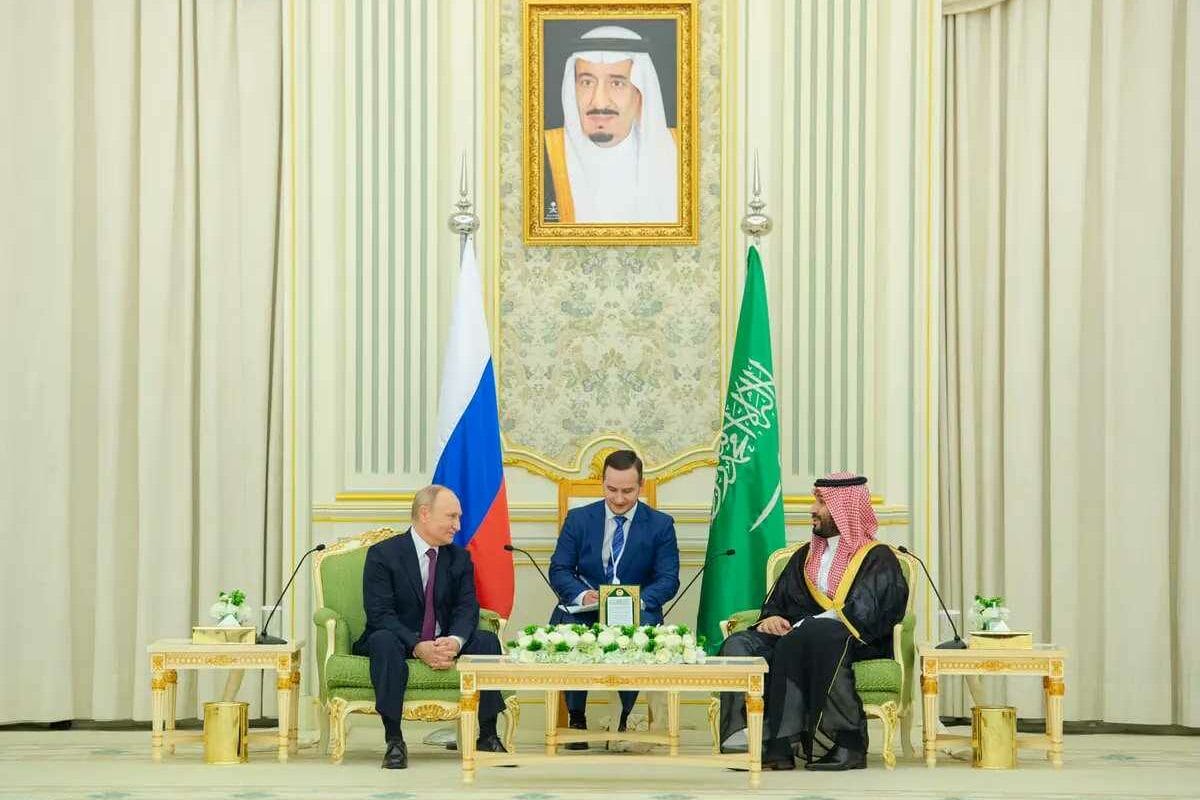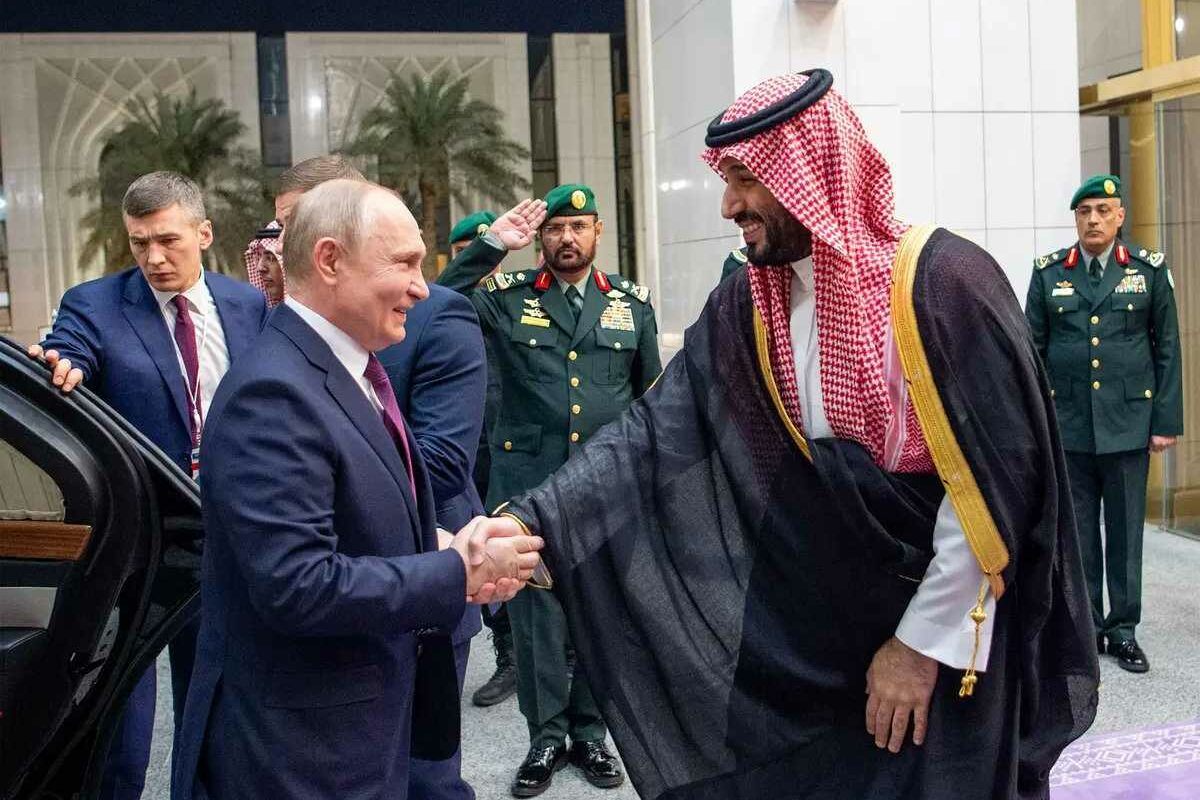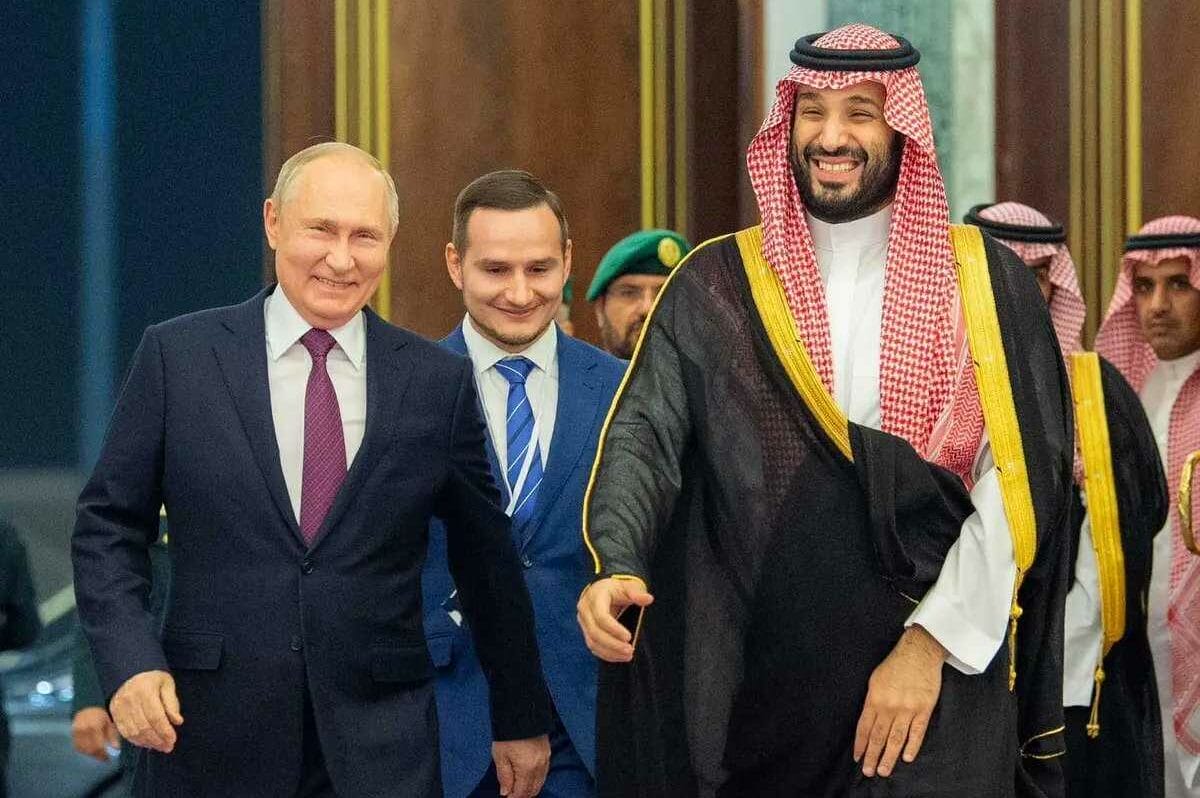Russian President Vladimir Putin engaged in crucial discussions with the Saudi Crown Prince Mohammed bin Salman, with a significant emphasis on the oil sector. This development during the President’s one-day visit to the UAE and Saudi Arabia.
In a joint statement, both nations underscored the importance of ongoing cooperation within the OPEC+ framework and the necessity for all participating countries to uphold the Alliance Agreement in the best interests of producers, consumers, and global economic growth. Both countries also agreed to enhance collaboration in the petroleum and gas sectors.
As per the Saudi Press Agency (SPA), Putin and the Crown Prince commended the strong cooperation between their respective countries and the “successful” efforts of OPEC+ nations, including the Organization of the Petroleum Exporting Countries (OPEC) and independent producers like Russia, in ensuring stability within the global oil markets. Both parties expressed a mutual commitment to further strengthening collaboration in various areas, such as oil and gas procurement, equipment standardization, research and development services, petrochemicals, and the exploration of modern technologies by companies from both countries.
According to Kremlin spokesman Dmitry Peskov, the talks between Putin and the Saudi Crown Prince addressed cooperation within the OPEC+, which they both agreed would continue. “Of course, they talked about cooperation within OPEC+. The parties show an interest. The parties agree that our countries shoulder an enormous responsibility for cooperation so as to support the international energy market at a proper level and in a stable and predictable condition. This cooperation will be continued,” Peskov said.
In line with the joint statement, the two leaders also agreed to enhance collaboration in various areas, including the peaceful use of nuclear energy, electricity and renewable energy, the development and sustainability of energy supply chain, and promoting inter-company cooperation to maximize the utilization of domestic resources in both countries. These efforts aim to enhance the flexibility and effectiveness of energy supply, improve energy efficiency, promote rational consumption, and raise awareness in the energy sector.

Significance of mutual investments
The Crown Prince and the Russian President lauded the significant level of mutual investments in industrial projects within the Kingdom, particularly the establishment of four factories in the cities of the Royal Commission for Jubail. These investments amount to up to SAR300 million.
Both sides also expressed appreciation for the remarkable 46 percent increase in trade volume in 2022 compared to 2022. They affirmed their commitment to continued collaboration in order to foster and diversify trade between the two countries. Additionally, they hihglighted the importance of enhancing communication between the private sectors of both nations to explore promising trade and investment opportunities and transform them into fruitful partnerships.
Read more: Putin visits UAE, Saudi Arabia today, oil key in talks
Supporting the Kingdom’s climate efforts
The joint statement emphasized the Russian side’s recognition of Saudi & Middle East Green initiatives, demonstrating support for the Kingdom’s efforts in addressing climate change. Specifically, the statement stressed the Kingdom’s application of the carbon circular economy approach, which was endorsed by the leaders of the G20 countries. Both parties highlighted the significance of adhering to the principles of the United Nations Framework Convention on Climate Change (UNFCCC) and the Paris Agreement, underscoring the need to develop and implement climate conventions with a focus on reducing emissions from various sources.

Furthermore, the statement touched on the shared commitment of both sides to maximize the utilization of local content in energy sector projects, foster innovation, and leverage emerging technologies such as artificial intelligence in the energy sector. The development of an enabling environment for these initiatives was also emphasized.
The agreement to strengthen cooperation extends to various sectors, including geoscientific and knowledge-sharing, environment, water, agriculture, food security, communication and technology, digital economy, innovation, space, transport and logistics services, sustainable tourism, and tourism development between the two countries.
For more news on the economy, click here.








